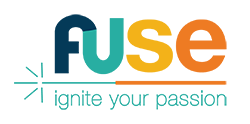Problem: What do I want for a job or career ?
Solution: Career Testing!

Many adolescents and college students get stuck in career development at the fork in the road. They ‘re left thinking,
“What do I want to do with my life?”
Frequently the fork in the road is actually several forks in the road —-“I want to be a veterinarian, a nurse, a writer, a massage therapist, and a chef!” Which fork to choose? And let’s be honest —- many adults who are currently working want to change jobs (70% of Americans would change jobs if they could) but these folks often delay making that transition because they don’t know how to make a better career choice. While the forks in the road are complicated there are several ways to reduce the problem down, make decisions easier, and make action possible.
Did you know?
Personality strengths & issues, and your interests dramatically influence your choice of career, college,
college major, business ventures, and job satisfaction.
…..and yet most people do not pay attention to these factors in their career decisions.

In order to be successful at choosing a well-matched career we need to know ourselves very well. This “self knowledge” includes at least 8 core areas, for the purpose of this article we will target interests and dislikes and personality strengths & limits.
INTERESTS
When we want to choose our path we need to understand our specific interests in tasks, jobs, coursework, people, books, media, work environments, general life interests, etc. In career counseling there are 3 ways to gather this information about interests—-through discussion with the counselor, homework exercises, and through career testing. One assessment that is commonly used is the Strong Interest Inventory which provides concise information about occupational and life interests, college major interests, how well you match with others in specific occupations (e.g., veterinarians), and personal styles of work. The Strong does not “tell” you what you should do for a living but gives you useful information to explore and reduce your choices—for example, it may help you reduce from a list of 7 occupation choices down to 2 and to choose wisely between those 2 occupations.
PERSONALITY STRENGTHS AND LIMITATIONS
So now we have some idea of our interests, but what about our personality?
Perhaps we are interested in being a veterinarian but don’t have the personality traits to succeed or enjoy being a vet. How would we know? Personality traits (e.g. warm,
aggressive, flexible) are life-long qualities that influence our choices and life experiences. They are difficult to pin down because they shift with the situation and require discussion, homework, and testing to completely understand. Personality testing helps us to be able to verbalize our strengths and to face the traits that are limitations for us—-which is important in choosing a job or career. If you cannot tolerate emotional situations and uncertainty you may be very stressed as a vet and do poorly in that job—despite interests and skills. The Myers-Briggs (MBTI) is one of many types of personality assessments that can be used by the career counselor to provide clear information about your preferences for certain tasks and jobs, work environments, people to work with, leadership type, as well as your strengths and limitations in the job search (e.g., interviewing skills).
Finally, it is important to note that these career assessment tools require significant training to interpret—yet they exist in watered down versions on the internet and/or are often used in large group situations where you are given the results without any 1 on 1 counseling to assist you with interpreting or utilizing the information. A good career counselor goes far beyond the test results to integrate them with other areas of life (e.g., age, family, financial, skills, health, etc.).
Career development is complex.
Contact a career counselor who has special training and experience in helping with the complex web of factors in career choices.
Job search suggestions:
1. Career Development is an outward experience.
We used to consider career development as upward (within the same company or industry)—- now it is outward —out to related occupations that focus on the same core (similar tasks and work environment, education and skills, similar personality traits, values and needs). But it is “outward” in that these related jobs are novel to the person, not in the same company or industry, and offer variety across the lifespan.
2. You need to know your core self (values, needs, interests, skills, passions) to move forwardwithclarityandconfidence. Stickwithyourpassionduringanytransitions(whether economic or lifespan changes), especially as gig economy (where individuals hold down multiple jobs replacing a 40 hour job) takes hold.
3. Job-seekers must be creative to find the companies and products that are flourishing in this new economy—and there are a few that are flourishing!.
4. That creativity in job-seeking requires updating resume, interviewing skills, and job-search tools to match the current situation.
5. Don’t isolate yourself —-seek out others who are on a similar journey, seek out support groups and mentors, and seek out career counseling.

